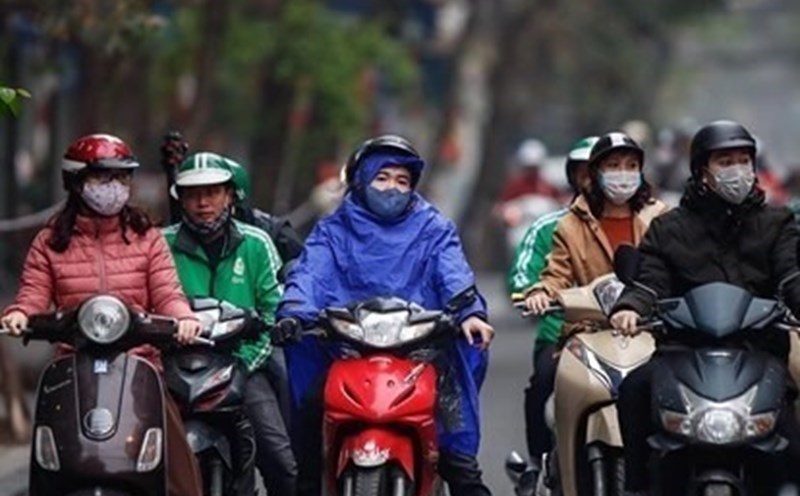On December 6, the North welcomed a strong cold spell. From December 7 to 8, the temperature in the North decreased; then the cold air tended to weaken from December 9 to 10, causing the temperature to increase. However, in the coming days, the weather in the North and Central regions will continue to change due to the strengthening of the strong cold air.

Mr. Nguyen Van Huong - Head of Weather Forecast Department, National Center for Hydro-Meteorological Forecasting provided notable comments on the upcoming cold air developments.
Sir, what is the nature of the upcoming cold air mass, will it cause rain or not?
- Due to the influence of cold air combined with high-altitude easterly wind disturbances, from the evening and night of December 10 to around December 15, the Central Central and South Central regions (in which the focus area is the area from Quang Tri to Binh Dinh and Khanh Hoa) are likely to experience a widespread period of moderate to heavy rain.
Heavy rains are likely to cause flooding in low-lying areas; flash floods in small rivers and streams, and landslides on steep slopes. This rain is likely to affect agricultural production activities of people in the Central region.
What is your assessment of the intensity of this cold air mass and how will it affect the temperature in the North and Central regions, sir?
- Around the afternoon and night of December 11, the North will be affected by the northeast monsoon. Then around December 12, December 13 and December 14, there will be continuous cold air waves.
The cold air will be added on the background of the sharp drop in temperature from December 11. Therefore, on December 12-13, the temperature will continue to decrease. We estimate that around December 14-15, the mountainous and midland areas of the North will likely experience severe cold, with some places experiencing severe cold. The average daily temperature will drop below 15 degrees Celsius.
With such low temperatures, what advice do you have for people during the upcoming cold spell?
- With such a drop in temperature, not only human health is affected, but also crops and livestock are affected. People in the mountainous and midland areas of the North need to have a plan to care for and keep their livestock and poultry warm as well as fully protect their crops.
In addition, we also assess that during this cold spell, strong winds will occur at sea in most of the North East Sea, in which the Hoang Sa archipelago sea area, the Gulf of Tonkin sea area, the sea area from Quang Tri to Binh Thuan will have strong northeast winds of level 6, level 7 and waves from 3 - 5m high causing rough seas.
Thank you very much!











